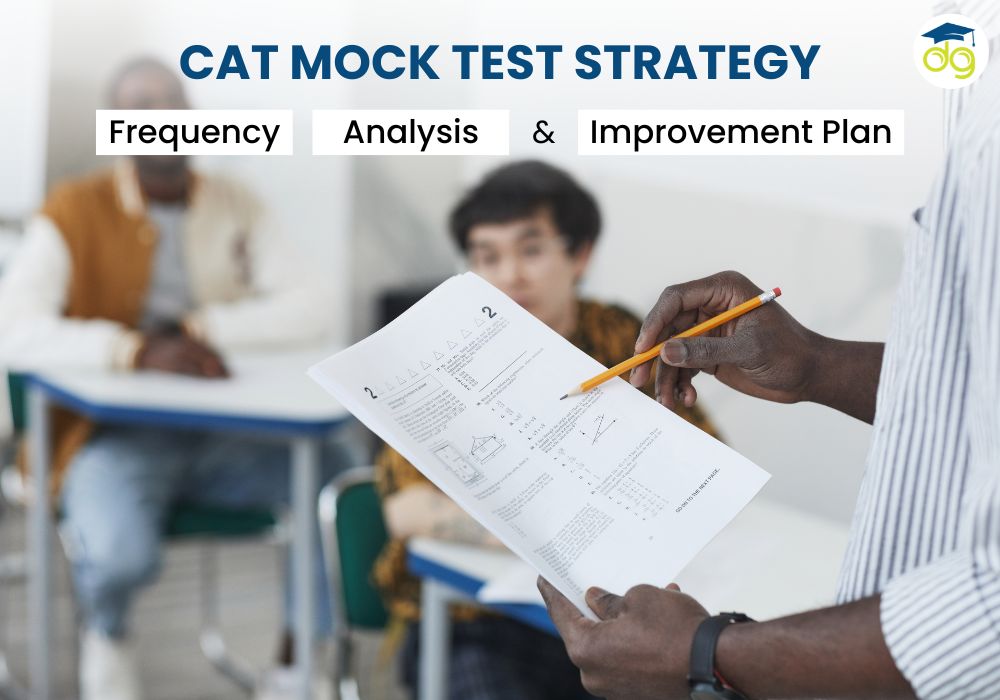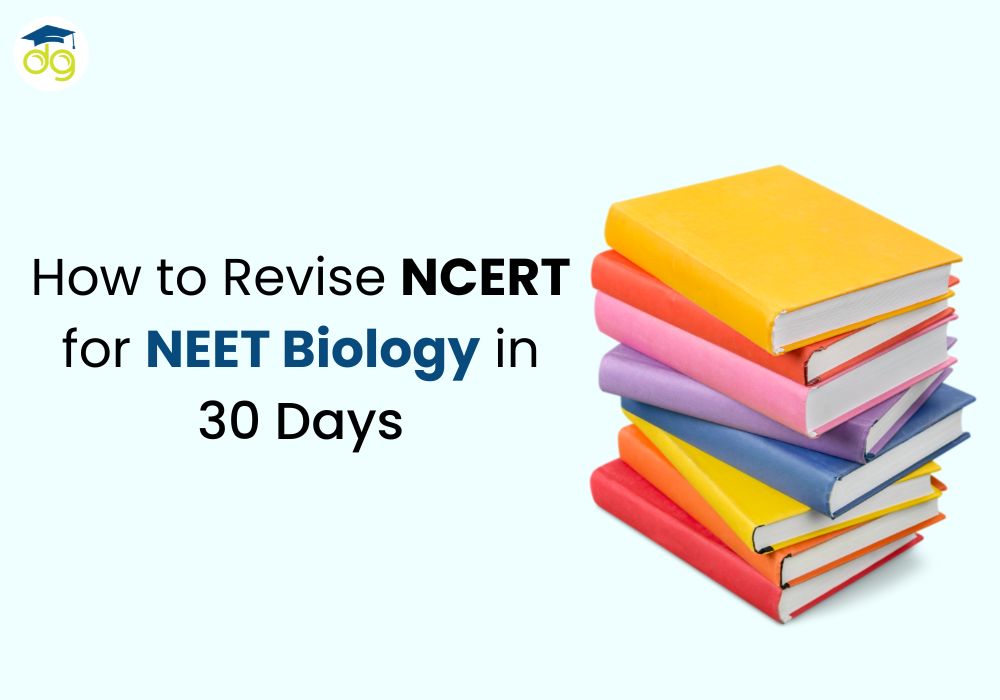JEE Advanced 2026: Top Scoring Topics Based on Past Trends
Maximize Your JEE Advanced Score with High-Weightage Chapters
JEE Advanced is considered one of the toughest entrance tests in India. With thousands of hopefuls fighting for a limited number of seats at IITs, applicants require more than hard work - they must have the help of a well-planned preparation plan.
An effective strategy is to be focused on JEE Advanced, high-scoring subjects. Although the entire syllabus should be covered, paying special focus to chapters that regularly score higher marks will dramatically improve your results.
This blog focuses on the important topics of JEE Advanced 2026, basing it on JEE Advanced previous year study and trend information. Students can also discover methods of preparation, breakdowns by subject, and solutions to commonly asked questions.
Why Focus on High Scoring Topics?
Everyone JEE hopeful knows that time is short and the syllabus is huge. It is important to prioritize the weightage of chapters in JEE provides several advantages:
- Effective Time Management: The more time you spend on subjects that appear repeatedly can help you score higher.
- Confidence boost: Familiarity with high-weightage chapters helps students take the exam in a clear manner.
- More Accurate: Practicing trending questions in the past sharpens solving skills.
- Higher Scores, because a significant portion of the work is controlled by particular chapters, knowing them will give an advantage.
Subject-Wise JEE Advanced High Scoring Topics
In accordance with JEE Advanced past year analysis, this is an organized breakdown by subject of the principal chapters.
Physics - Where Concepts Meet Application
Physics within JEE Advanced is a blend of mathematical formulas, theories, and application-based questions. The topics include electromagnetic Induction, thermodynamics, and the motion of rotation take center stage in the article.
Chapter / Topic | Key Focus Areas | Approximate Weightage |
| Mechanics | Newton's Laws, Work-Energy, Rotational Motion, Gravitation | 20-25% |
| Current Electricity & Magnetism | Circuits, Magnetic Effects, EMI | 15-20% |
| Modern Physics | Photoelectric Effect, Nuclear Physics | 10-12% |
| Optics | Ray Optics, Wave Optics, Lens Systems | 8-10% |
| Heat & Thermodynamics | Laws of Thermodynamics, Kinetic Theory | 10-12% |
The PYQs' insights:
- The field of mechanics is consistently the most dominant in Physics and accounts for nearly a quarter of the tests.
- Optics JEE questions are dependable and may be modified quickly.
- Electromagnetic Induction is mentioned in nearly every single paper.
Chemistry - The Most Scoring Section
Chemistry can be the most important factor in determining rank because it scores higher. In the context of NCERT as the base course, students need to concentrate on the conceptual clarity of Physical Chemistry, reactions in Organic Chemistry, and the theory of Inorganic Chemistry.
Chapter / Topic | Key Focus Areas | Approximate Weightage |
| Chemical Bonding & Molecular Structure | Hybridization, Molecular Orbital Theory | 12-15% |
| Coordination Compounds | Isomerism, Bonding Theories | 10-12% |
| Organic Chemistry (GOC + Named Reactions) | Reaction Mechanisms, Functional Groups | 10-12% |
| Electrochemistry | Nernst Equation, Conductance | 8-10% |
| Thermodynamics & Equilibrium | Enthalpy, Gibbs Free Energy | 8-10% |
The PYQs' insights:
- Organic Chemistry contributes about 30-35% to Chemistry questions.
- Coordination compounds possess a very high repetition rate.
- Thermodynamics has overlaps with Physics and Chemistry, making it a dual-benefit subject.
Mathematics - Practice-Heavy but High-Yield
Mathematical concepts require strong fundamentals and the ability to speed. Of all subjects, calculus weightage is at the top in the least weightage, with at most one-third of questions coming from the area of calculus.
Chapter / Topic | Key Focus Areas | Approximate Weightage |
| Calculus | Limits, Differentiation, Integration, Differential Equations | 30-35% |
| Algebra | Matrices, Determinants, Complex Numbers | 10-12% |
| Vectors & 3D Geometry | Equations of Lines & Planes, Vector Algebra | 10-12% |
| Coordinate Geometry | Circles, Conics, Straight Lines | 12-15% |
| Probability & Statistics | Bayes' Theorem, Variance, Probability Distribution | 5-8% |
The PYQs' insights:
- Applications of derivatives in math and integrals have been rigorously examined.
- Vectors, and 3D Geometry, are often associated with Coordinate Geometry.
- Calculus is a great way to help a student get high marks in Maths.
Year-Wise JEE Advanced Trend Analysis
This table details the most popular themes from the past five years ' worth of JEE Advanced Papers:
Year | Dominant Physics Topic | Dominant Chemistry Topic | Dominant Maths Topic |
| 2025 | Mechanics | Coordination Compounds | Calculus |
| 2024 | Modern Physics | Electrochemistry | Matrices & Determinants |
| 2023 | Thermodynamics | Organic Chemistry | Vectors & 3D Geometry |
| 2022 | Optics | Chemical Bonding | Calculus & Probability |
| 2021 | Electromagnetism | p-Block Elements | Complex Numbers |
Note: Mechanics, Chemical Bonding, and Calculus occur almost every year as the most popular themes.
How to Identify High Scoring Topics in JEE Advanced?
Students often wonder: How do I identify areas that score high on JEE Advanced? The answer is in two parts:
- JEE Advanced Previous Year Analysis - Review the PYQs, and then note the subjects that score higher frequently.
- Weightage Comparison - The priority is to prioritise the weightage chapters of JEE, such as Calculus, Mechanics, and Coordination Compounds.
This method ensures that the time spent is focused on issues that will yield the greatest return.
Strategic Preparation Tips
- Master High-Weightage Zones: You can spend more time studying thermodynamics, calculus, rotating motion, and organic chemistry.
- Review Weekly: Spend one full day every week to formula and revise the reaction.
- Answer PYQs: You can try advanced JEE question banks, Chapter-wise, before moving on to full-length tests.
- Utilize Mock Tests: Exam conditions can be replicated to help you manage your time better.
- Balanced Coverage: Don't skip the subjects with low weightage, as they usually are easy to mark.
Common Mistakes Students Make
- Ignoring NCERT in Chemistry.
- Formulas and formulas are not enough to grasp the concepts.
- Not focusing on weaker areas at all costs.
- Answering mock tests with no time recording.
Conclusion
The process of passing JEE Advanced requires both determination and a hard approach to work. Concentrating on JEE Advanced's top-scoring areas, students will increase the chances of scoring high.
The past year's trends show that math, mechanics, organic chemistry, and coordination substances dominate the exam. The exam is unpredictable, however, unpredictable, so it is imperative to review the entire syllabus.
Finding the right equilibrium between JEE chapters on weightage and consistent practice, as well as mock exam analysis, can assist candidates in achieving a top score for the JEE Advanced 2026.
Discover Skoodobridge, and get access to trusted resources, preparation tips and the right guide to stay ahead.
FAQs
Q1. Which chapters have the highest weightage in JEE Advanced?
Mechanics in Physics, Calculus in Mathematics, and Chemical Bonding in Chemistry consistently have the best marks.
Q2. What are the most important topics for JEE Advanced 2026?
Calculus, Mechanics, Coordination Compounds, and Organic Chemistry are must-focus chapters.
Q3. How to identify high scoring topics in JEE Advanced?
By analyzing JEE Advanced previous year analysis and noting the topics that are featured each year.
Q4. Is focusing only on high scoring chapters enough?
Not at all, even though these chapters increase scores, covering the whole syllabus is crucial for avoiding surprises.
Q5. How important is revision in JEE Advanced preparation?
Revise ensures that formulas are retained, as well as responses, and methods for problem solving, particularly in chapters with high weightage.
Categories
Archives
Similar Posts

CAT Mock Test Strategy: Boost Scores with Analysis & Planning
by Skoodos Bridge

JEE Advanced 2026: Top Scoring Topics Based on Past Trends
by Skoodos Bridge


SSC CGL Syllabus & Exam Pattern 2025: Tier-wise Full Breakdown
by Skoodos Bridge

English Preparation for Banking Exams: Grammar, Vocabulary & RC Tips
by Skoodos Bridge

Monthly UPSC Current Affairs PDF: Why It Matters & Where to Find
by Skoodos Bridge

CAT Quant Mistakes: Common Errors & How to Avoid Them in 2025
by Skoodos Bridge

JEE 2025 Revision Strategy: 60-Day Plan for Maximum Retention
by Skoodos Bridge

How to Revise NCERT Biology for NEET in 30 Days | 2025 Strategy
by Skoodos Bridge


Leave a Comment